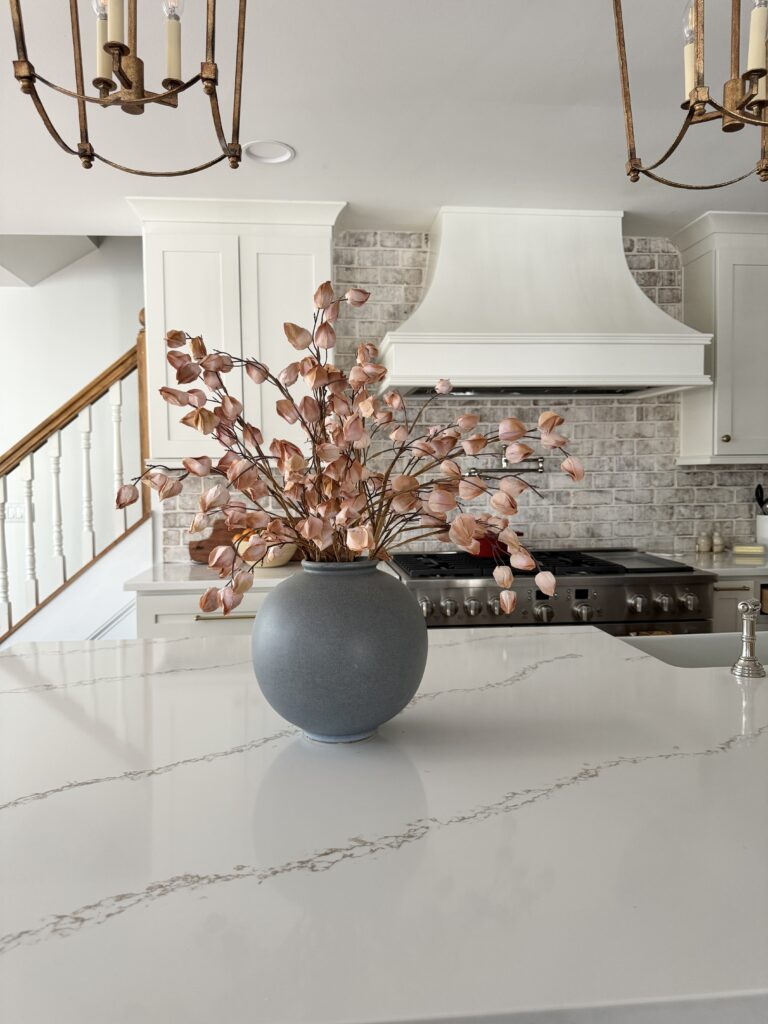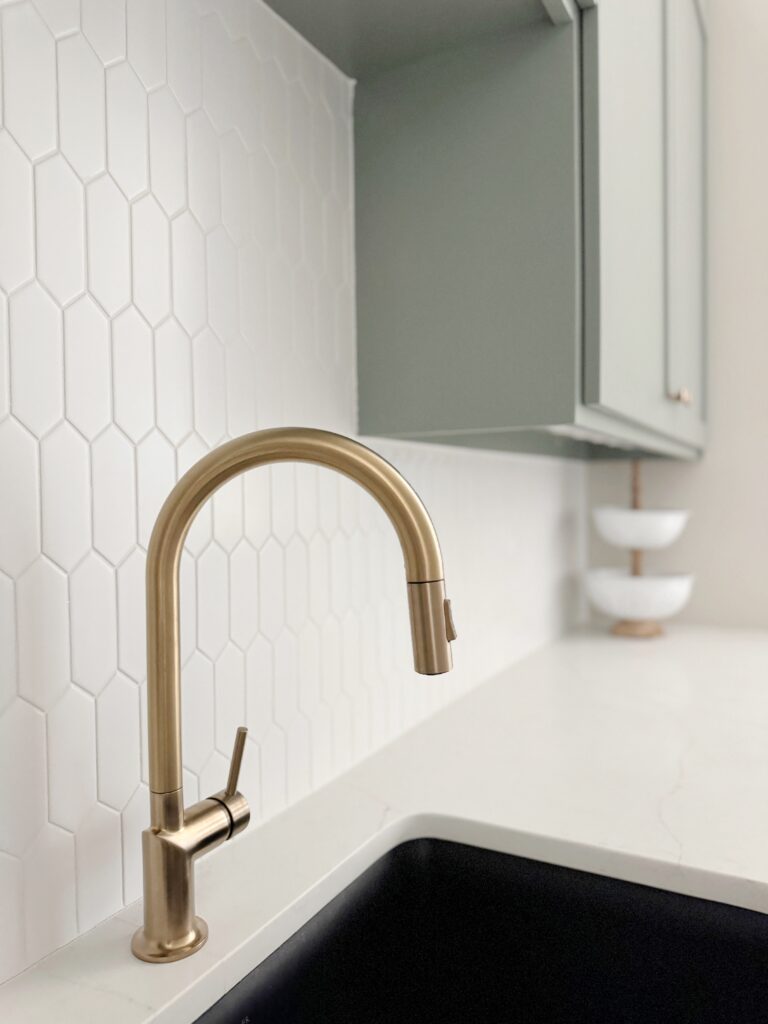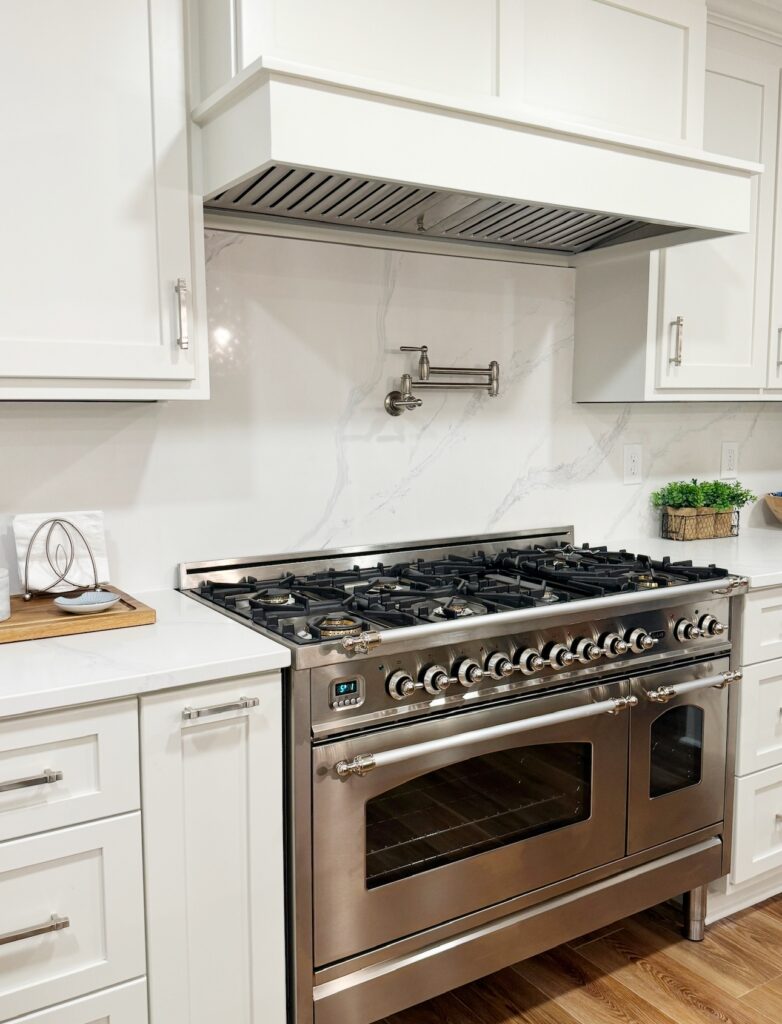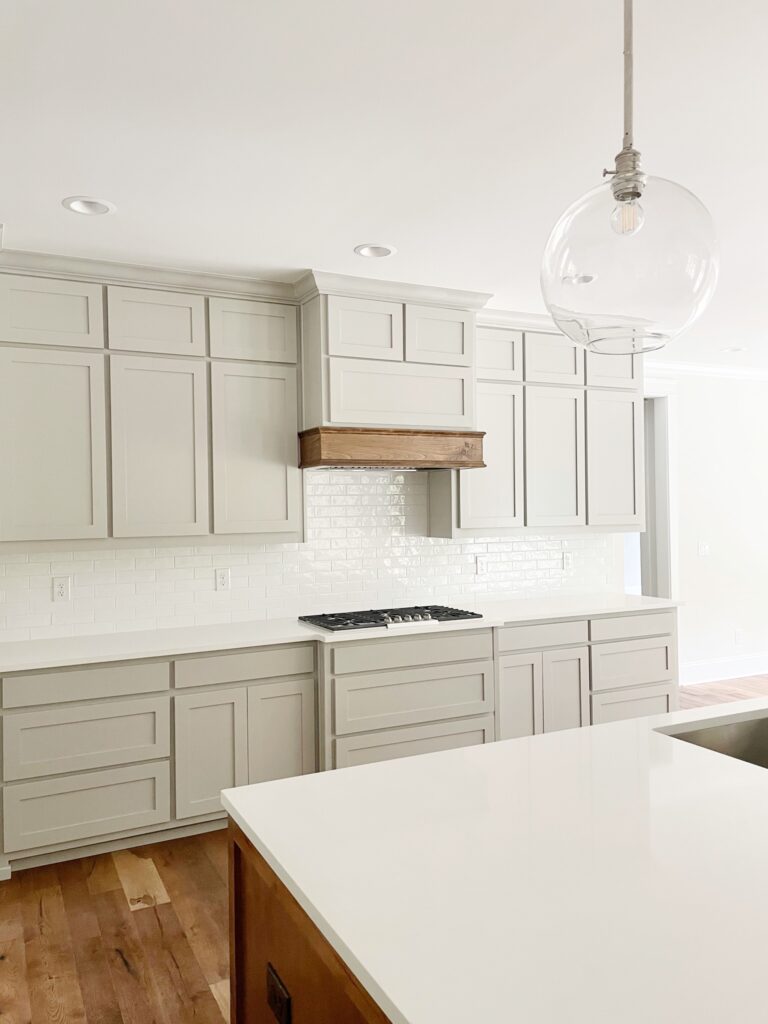When it comes to choosing a countertop material, there are many options available, but one that’s gained a lot of popularity in recent years is quartz. As a man-made material, quartz offers some distinct advantages over natural stone options like granite, marble, quartzite, and soapstone, but it’s not without its drawbacks. In this post, we’ll break down the pros and cons of quartz countertops to help you decide if they’re the right choice for your home.
What Is Quartz, Exactly?
Before diving into the pros and cons, it’s important to understand what quartz is. Unlike granite, marble, quartzite, or soapstone, which are naturally occurring stones, quartz countertops are made from a combination of natural quartz crystals and synthetic resins. The process typically involves grinding up natural quartz (which is one of the hardest minerals on earth) and blending it with resins, polymers, and pigments to create a durable, engineered stone surface.

The Pros of Quartz Countertops
1. Consistency in Appearance
One of the biggest advantages of quartz is its consistent appearance. Because it’s a man-made material, the patterns and colors are uniform from slab to slab. If you’ve ever been frustrated with the variability of natural stone countertops—where no two slabs of granite, marble, quartzite, or soapstone are exactly alike—quartz may be the solution. What you see in a full slab is exactly what you’ll get in your kitchen or bathroom, which can provide peace of mind if you’re looking for a more predictable aesthetic.

This makes quartz especially appealing for homeowners who don’t want to gamble with natural stone’s inherent variation. If you have a specific look in mind and don’t want to risk surprises when the countertop is installed, quartz offers the assurance that your vision will be realized.
2. Low Maintenance
Quartz is non-porous, meaning it doesn’t require sealing like natural stones such as granite, marble, or soapstone. This makes it incredibly low-maintenance. You won’t have to worry about staining or absorbing liquids, and cleaning is as simple as wiping down the surface with a mild cleanser. For busy families or those looking for a hassle-free countertop, quartz is a great option.

3. Durability
Quartz countertops are incredibly durable. The combination of natural quartz and resins makes the material resistant to scratches, chips, and cracks. While it’s not completely indestructible, quartz is one of the hardest countertop materials available, second only to granite in terms of strength. If you’re looking for a countertop that can withstand daily wear and tear, quartz is an excellent choice.

4. Aesthetic Variety
Quartz countertops come in a wide range of colors and styles, from classic whites and grays to bold blues, blacks, and even custom patterns. The variety of available designs means there’s something to fit every kitchen style, whether you prefer a minimalist, modern look or something more vibrant and dramatic.

5. Cost-Effectiveness (In Some Cases)
While quartz can be pricier than laminate or butcher block, it’s often more affordable than high-end natural stones like marble or exotic granite. If you’re seeking the elegance of natural stone but want something more budget-friendly, quartz might offer a good balance of price and performance, especially in certain levels of quartz.

The Cons of Quartz Countertops
1. Not Heat Resistant
One of the downsides of quartz is that it isn’t as heat-resistant as natural stone. While it can handle the heat from a pot or pan for short periods, prolonged exposure to high temperatures can damage the surface, causing discoloration or even cracking. For those who do a lot of cooking or baking, it’s important to be mindful of this limitation and use trivets or hot pads when placing hot cookware on the countertop.
2. Can Be Prone to Scratches
While quartz is incredibly durable, it’s not impervious to scratching. It’s still possible to scratch the surface if you use sharp objects or place something heavy on it. Cutting directly on a quartz countertop is not recommended, and it’s always best to use a cutting board to protect the surface.
3. Limited Natural Stone Appeal
For homeowners who love the natural look of marble, granite, soapstone, or quartzite, quartz may not fully satisfy that desire. While it can mimic the appearance of natural stone, quartz countertops don’t have the same depth, movement, or variation that you get from authentic stones. If you’re a fan of the unique veining and patterns that come with granite or marble, quartz might feel a bit too uniform for your tastes.
4. Visible Seams
Although quartz is a man-made material that offers consistent patterns, the seams between quartz slabs can sometimes be visible, especially if the countertop is large. While skilled installers can minimize the visibility of seams, they may still be more noticeable compared to the seamless look you get with materials like solid surface countertops.
5. Not as Eco-Friendly as Natural Stones
While quartz is made from natural minerals, the process of creating engineered quartz involves synthetic resins and other chemicals. As a result, it’s not as eco-friendly as purely natural stone options like granite, quartzite, or soapstone. If sustainability is a priority for you, you may want to consider other materials, or look into quartz brands that prioritize eco-conscious manufacturing processes.
A Final Tip: See the Full Slab Before You Decide
As with any countertop material, we highly recommend seeing a full quartz slab before making your final selection. While the samples provided at showrooms or online can give you a good idea of the color and pattern, nothing compares to seeing the actual slab that will be installed in your home. Quartz is made in batches, so slight variations between samples and full slabs can occur. Viewing the entire slab in person allows you to check for any unique features, patterns, or color variations, ensuring it’s the perfect fit for your space.

Conclusion
Quartz countertops are an excellent choice for homeowners looking for a durable, low-maintenance, and aesthetically consistent surface. They are particularly popular among those who want lighter, brighter countertops and appreciate the predictability of a man-made material. Over the last few years, we’ve installed many quartz countertops due to their consistency in appearance, cost-effectiveness, and ability to meet the demands of modern kitchens.
However, if you love the unique character of natural stone—such as granite, marble, soapstone, or quartzite—or do a lot of cooking with high heat, quartz may not be the perfect fit for your home. Like any material, it has its pros and cons, so take some time to weigh your options and choose the one that best fits your lifestyle and design preferences.

leave a comment